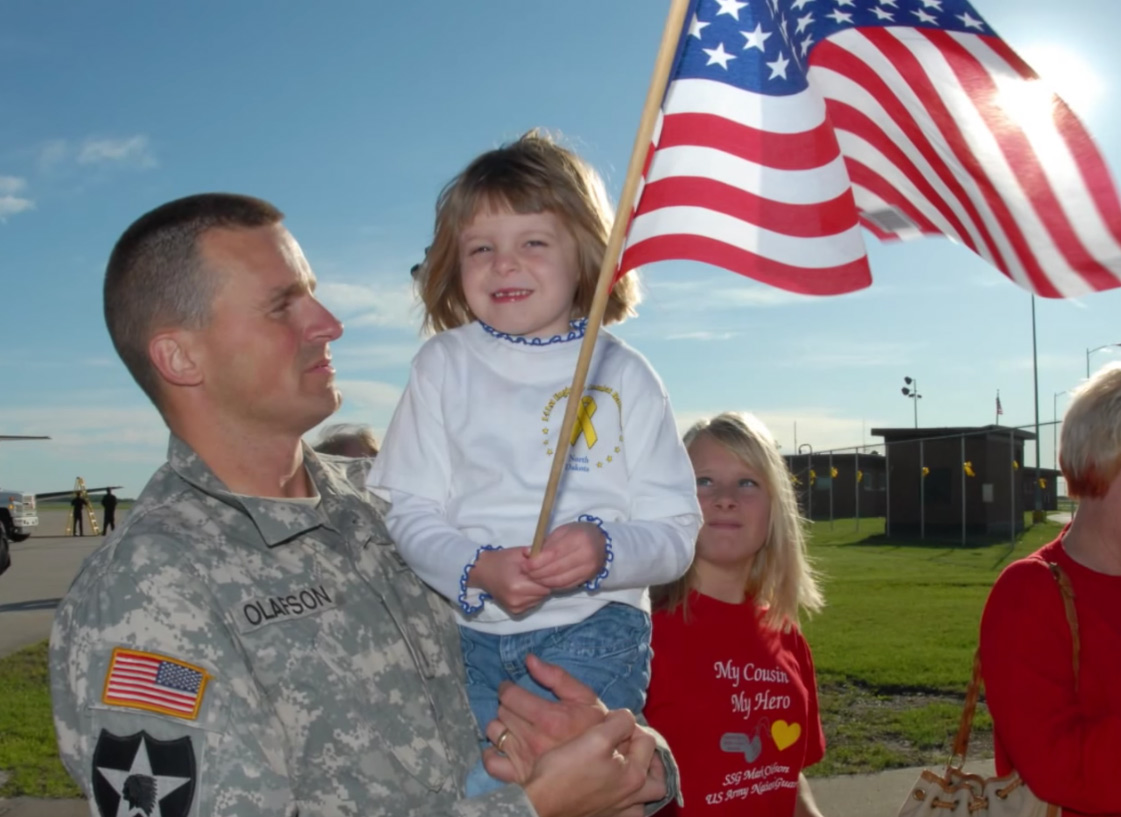Coming Home: A study by TC’s Resilience Center for Veterans & Families argues that veterans more often struggle with adjustment to civilian life than the horrors of war

The stereotype of the shell-shocked military veteran, rendered non-functional, suicidal or dangerous by repeated exposure to unthinkable violence, is obscuring a far more wide-spread set of issues that are hampering many veterans in their efforts to live productive, fulfilling lives.
According to a new paper by researchers from Teachers College’s Resilience Center for Veterans & Families, the most frequent source of problems for veterans is the return to the dramatically different circumstances of civilian life. The resulting “transition stress” can arise from difficulties finding a job, working with civilian colleagues, and getting along with family and friends.
Noting that transition stress has been found to predict “the later development of mental and physical health problems, including suicidal ideation,” the authors argue that the needs of most returning military veterans who struggle with psychological or emotional issues are not being met by current treatments and research, both of which focus almost exclusively on PTSD. They call for a paradigm shift that includes “a broader clinical and research agenda regarding veteran psychological health,” especially the development of studies “beginning at entry level basic training and continuing while soldiers are in active duty and then repeatedly after they complete their military service.”
Mobbs and Bonanno contrast research showing that PTSD afflicts fewer than 10 percent of post 9/11 veterans with “recent population survey studies” suggesting that “44 percent to 72 percent of veterans experience high levels of stress during the transition to civilian life.” Moreover, they assert that difficulties with transition are reported at “higher, more difficult levels for post-9/11 veterans than those who served in any other previous conflict.”
The paper, titled “Beyond War and PTSD: The crucial role of transition stress in the lives of military veterans,” will appear in the February 2018 issue of Clinical Psychology Review, and is already available online. The authors are clinical psychology doctoral student Meaghan Mobbs, a West Point graduate who commanded an aerial delivery detachment in Afghanistan and is now the David and Maureen O’Connor Scholar at Teachers College; and George Bonanno, Professor of Clinical Psychology, a world-renowned authority on grief, loss and trauma who is the RC Resilience Center Director.
Mobbs and Bonanno do not question “the serious and debilitating nature of PTSD. But they contrast research showing that PTSD afflicts fewer than 10 percent of post 9/11 veterans with “recent population survey studies” suggesting that “44 percent to 72 percent of veterans experience high levels of stress during the transition to civilian life.” Moreover, they assert that difficulties with transition are reported at “higher, more difficult levels for post-9/11 veterans than those who served in any other previous conflict.”
More than 1.7 million soldiers who were deployed to Iraq and Afghanistan have returned to civilian life and 1 million more are expected to do so by 2022.
Why is transition itself often such a difficult experience? The vast majority of active soldiers are between the ages of 18 and 25, the period known as “emerging adulthood,” which Mobbs and Bonanno characterize as a time of “rapid development and considerable vulnerability” While in the armed services, they are inducted into “an institutionalized lifestyle” that includes “concentrated unremitting supervision; intense physical training; and a powerful group experience in which relationships “are consequently described by many veterans as some of the closest they form in their lives.”

Yet upon leaving the military – for many, the first time they have lived on their own or managed their own finances – veterans often find themselves coping with challenges that can include grief and bereavement over comrades killed in action; low-end jobs that, compared with being a soldier, seem meaningless or humiliating; overwhelming nostalgia for life in the service (the majority of vets wish they could return to active duty); intense guilt or shame over war-time actions that in some way violated their own moral codes; stereotype threat from civilians who expect them to be “either broken warriors or unhinged and armed”; and their own stoicism, bred by a masculine military culture, which is often a barrier to seeking help or treatment. The latter problem has exacted a pronounced toll on female veterans, among whom the suicide rate has doubled compared to civilian women between 2001 and 2014.
There is “no panacea” for the wide-ranging issues associated with transition stress, according to Mobbs and Bonanno. Rather, efforts to improve veterans’ lives must begin with recognition that “treatments and supports need to move beyond their nearly exclusive focus on PTSD” and that more and different research is needed to understand precisely how transition stresses play out for different kinds of individuals. To that end, later this spring Mobbs and Bonanno will begin a study in which they will follow 600 active-duty soldiers into civilian life, with repeated follow-up over a period of years. The study is funded by David and Maureen O’Connor, whose generous gift in 2015 established the Teachers College Resilience Center for Veterans and Families.
“I’m thrilled to see that research from the TC Resilience Center is shaping new directions in supporting our veterans and understanding their needs,” says David O’Connor, who is Senior Managing Partner, High Rise Capital Partners, LLC, and a member of the Investment Committee of Teachers College's Board of Trustees,. “The sacrifices that veterans make are enormous, and we owe it to them to ensure that these findings are put into practice on a broad scale.”
Previous work by George Bonanno has demonstrated the vast majority of people are far more resilient to grief and psychological trauma than was previously thought; that grieving is a non-linear process that follows no set pattern; and that a quality called flexibility – the ability to adapt one’s emotional response to different circumstances – best predicts resilience to potentially scarring life events.
Published Wednesday, Dec 20, 2017